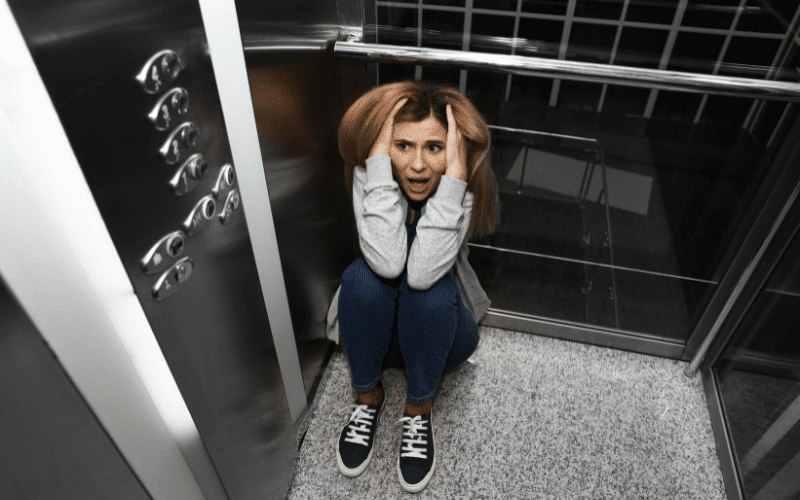9. Panic Attacks – The Power of the Mind

Panic attacks are sudden episodes of intense fear that trigger severe physical reactions when there is no real danger or apparent cause. They can be very frightening and may lead you to believe you’re having a heart attack.
A panic attack can be a deeply unsettling experience. Many who experience it for the first time mistake it for a heart attack, as the symptoms can be eerily similar. Chest pain is often one of the symptoms, accompanied by a pounding heart or palpitations, sweating, trembling, a sense of impending doom, and the feeling of being detached from reality.
The chest pain associated with panic attacks can vary in intensity, but it’s typically described as sharp and located in the middle of the chest. It can be frightening, making the person fear they are having a heart attack. The pain might intensify with the stress and fear that come along with a panic attack.
But here’s the catch – while heart-related chest pain often extends to other areas, such as the arm or jaw, chest pain from a panic attack is usually confined to the chest. It can last from 5 to 20 minutes and can intensify with physical movement or deep breathing. The chest pain gradually resolves as the panic attack subsides, leaving the person physically and emotionally drained.
Panic attacks can be triggered by various factors, including stress, certain medical conditions, medications, and caffeine. It’s also common among those with certain psychiatric disorders, such as generalized anxiety disorder and depressive disorders.
The good news is, panic attacks are generally harmless, although they can severely impact quality of life. If you experience recurrent, unexpected panic attacks and live in fear of another attack, you might have panic disorder, a type of anxiety disorder. Effective treatments are available, including cognitive-behavioral therapy, medications, and lifestyle changes. (9)